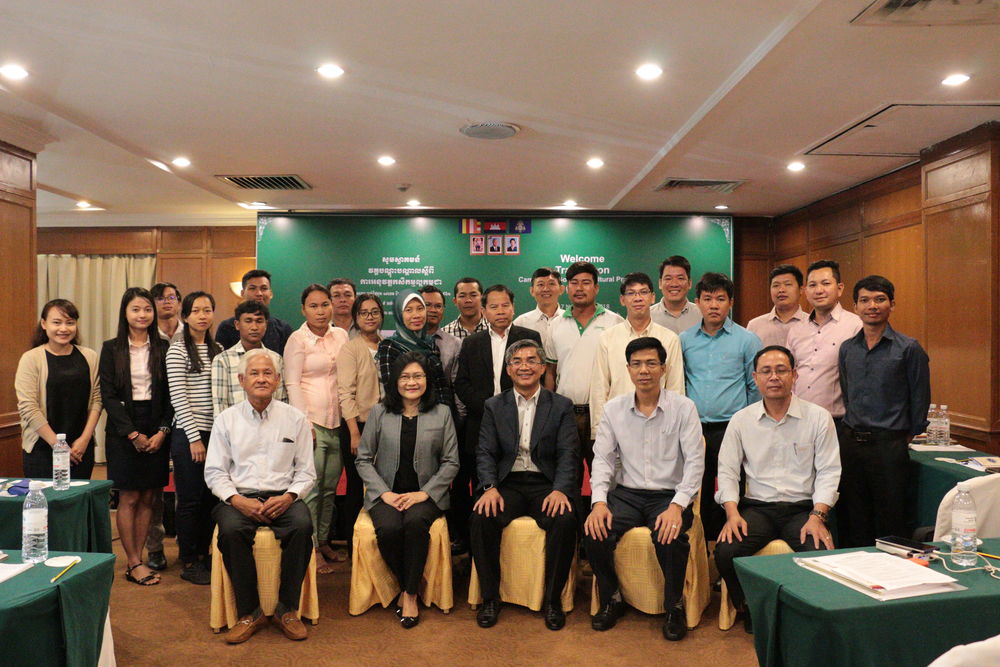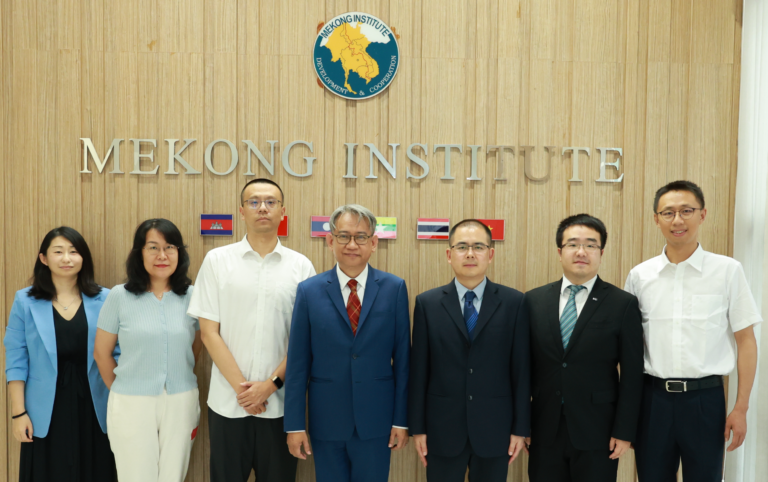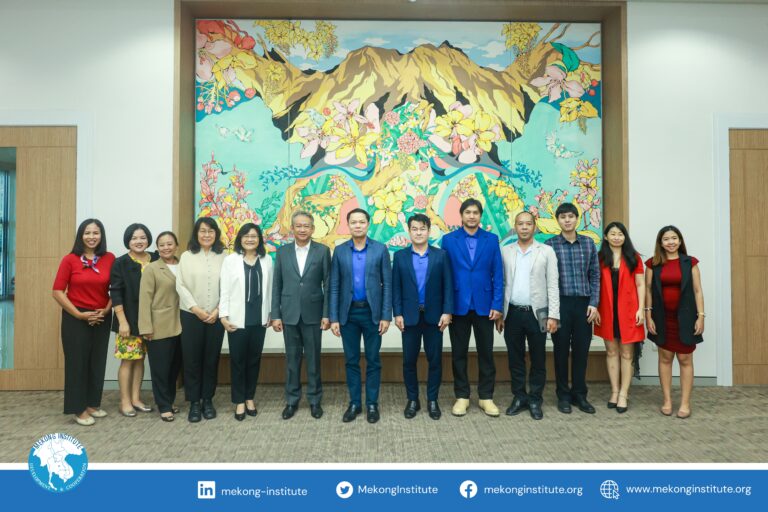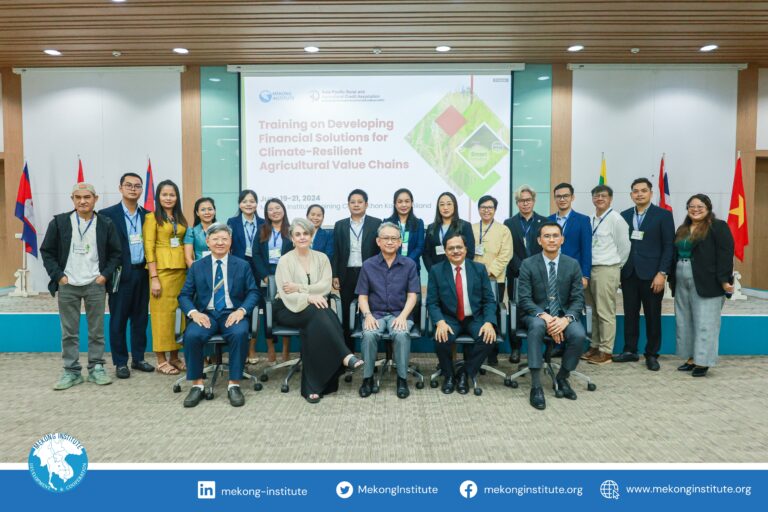Mekong Institute (MI) and the Department of Plant Protection, Sanitary and Phyto-sanitary (DPP-SPS), General Directorate of Agriculture (GDA), Ministry of Agriculture, Forestry and Fisheries (MAFF), co-organized a localized training on Cambodia Good Agricultural Practices (CamGAP) last November 5-7 at Sunway Hotel, Phnom Penh, Cambodia.
As part of the Cambodia Food Safety Week, 20 commercial vegetable producers and farmer cooperatives were selected to participate in the training course. It aimed to enhance the participants’ knowledge and technical capacities on CamGAP principles by introducing appropriate agrichemical and pest management practices to ensure safe, quality, and fresh produce. The training also served as a platform to connect producers with DPP-SPS to facilitate application and implementation of CamGAP.
Ms. Maria Theresa S. Medialdia, Director of the Agricultural Development and Commercialization Department of MI, welcomed the training participants with a brief introduction of MI and PROSAFE Project. After explaining the objectives of the localized training, she emphasized that producers are primarily responsible for assuring the safety of our food and as such, standards and safety compliance must begin with them. She then explained the importance of adopting good agricultural practices and how it can help in managing food safety risks during production, harvesting and postharvest handling of fresh produce. Concluding on a positive note, Ms. Medialdia highlighted the potentials of improving their current practices and acquiring certification for their vegetable farms.
Meanwhile, Dr. Ker Monthivuth, Director of DPP-SPS, highlighted in his opening remarks that food safety has received a great deal of attention due to lifestyle changes and economic growth in recent years. While several food crops produce a significant surplus, about 50–60 percent of fruits and vegetables in the market are imported from neighboring countries like Thailand, Vietnam and China just to meet domestic demands. In some cases, imported produce have been found to contain harmful bacteria and fall short of food safety standards.
“These issues and challenges can be transformed as opportunities for Cambodian producers by increasing the production areas, quality and safety of our fresh produce,” he added. “Adopting CamGAP can address food safety issues related to vegetable production, pest and agrichemical management, postharvest handling, and protecting our environment.” He stressed that GAP has become significantly important in light of heightened regional and international agri-food trade, as well as consumers’ growing consciousness and demand for safe and quality products.
The training was spearheaded by MI alumnus who attended the Regional Training of Trainers (TOT) on Food Safety Promotion and the Regional Training Program on Assuring Food Safety through Pest and Agrichemical Management held in July 2018, together with an expert from DPP-SPS.







